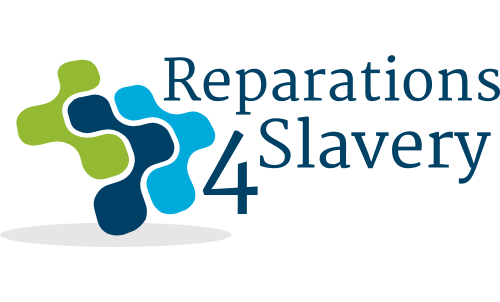An Interview with Alicia Tolbert
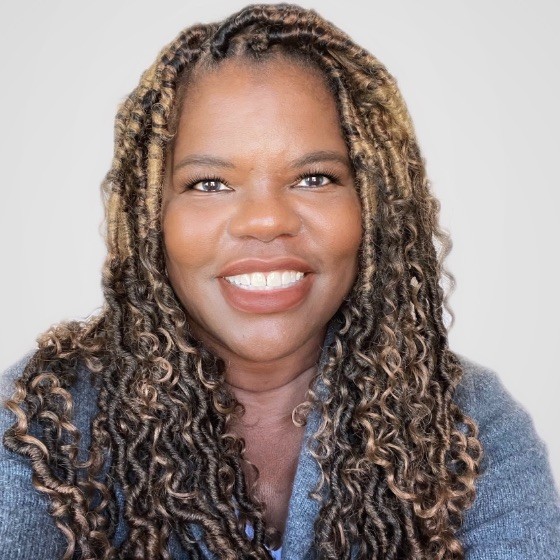
Alicia Tolbert
Alicia Tolbert is a dharma teacher and racial justice activist living and practicing in Los Angeles, CA. In 2010, she completed the Asian Classics Institute's four-year Buddhist curriculum alongside her mother, Marie. She has been studying and teaching Buddhist philosophy since 2005, with an emphasis on logic, refuge, and the bodhisattva path. Alicia took her lifetime lay and bodhisattva vows from His Holiness the Dalai Lama.
Lotte Lieb Dula, of R4S, and Alicia Tolbert met during a pilgrimage to Manzanar, a WWII-era Japanese-American concentration camp, sponsored by National Nikkei Reparations Coalition and Nikkei Progressives/NCRR.
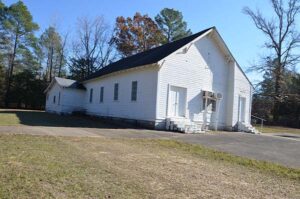
Mt. Olive First AME Church
Lotte:
Welcome, Alicia; it's great to have you. Today, I’d love to discuss with you the nature of repair at the intersection of faith and our shared history. To start, though, you have some amazing stories to tell about your ancestry. Do you mind sharing a bit about your ancestors and what you learned while researching their history?
Alicia:
Sure, my pleasure. So, I’ll start with my 2nd-great-grandfather. For simplicity, let's call him Grandfather Andy - but he's my 2nd great-grandfather.
Lotte:
How did you learn about this ancestor?
Alicia:
Believe it or not, I found his last will and testament online. His name was Andy Wilfong, and he had been enslaved in North Carolina. As a young man, he was sold away from his mother to the son of his original owner. They moved to South Carolina, where he was eventually sold away from his wife and child. He was sold to someone who allowed him on holidays to visit his first wife and child until he was freed.
I’ve kept googling through the years and found that he and 12 other formerly enslaved people pooled their resources and founded the Black community where my grandmother and mother were born. It’s called Mount Olive, Arkansas.
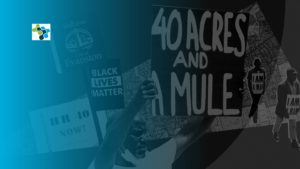
Lotte:
How did he acquire the land?
Alicia:
Grandfather Andy acquired 40 acres. It says in online documents that he purchased the land. So, I'm not sure if he was allowed to work and earn his own money and, therefore, be able to purchase land. But this land did come from his former owner. He took that land and found 12 others who had similar acreage or money, and they were able to form this wonderful community, Mt. Olive. Once he had the first 40 acres, he just kept buying land.
And I am super happy to be one of his descendants! <laughs>
"I've seen my shocking share of racism.
Not only do we have the wealth gap that's based on racism, but we still have racism itself, the root cause."
Lotte:
With your family’s unique story, I’d like to ask you about your thoughts on the racial wealth gap. Looking at today's racial wealth gap, which is around 10 times greater for white people than Black people - if Black families had been able to purchase land like your ancestor did, or if they had received the proverbial 40 acres and a mule, do you think we would have a racial wealth gap at this point?
Alicia:
Yes, there would still be a gap because it's not just about the economics of the past; it's also about current-day opportunities. Now, I was born in 1966, and I've seen my shocking share of racism. Not only do we have the wealth gap that's based on racism, but we still have racism itself, the root cause. So even if you level the economic playing field now, somehow, you still haven't leveled the opportunity field, which is impacted by racism. I think that will take Gen Z coming to power because they just don't take the crap that a lot of us did, thinking, well, you gotta go along to get along.
I think we've done as much going along and getting along as possible, and now we have to wait for the old racists to die and for the people in power to understand that people of color have a lot of economic power now, and we're no longer afraid to use that muscle.
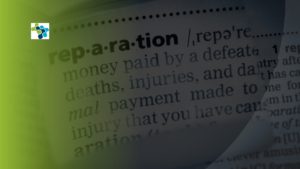
I know that it's a very painful topic for a lot of white folks who feel, “Hey, I didn't have anything to do with this, and I feel like I'm being castigated.” However, their white ancestors benefited, and they continue to benefit from the free labor given by Black people. You know, people look around and wonder, wow, how is it that the United States became a superpower so quickly? Well, it was off the backs of slave labor. Paul Robeson said it best: the United States took Black people and forced them to work. And yes, you can get ahead quickly that way. So, I do think that there would still be all sorts of gaps: education gaps, economic gaps, and the digital divide because we still have people who feel that Black people are inferior and don't deserve a seat at the table.
Lotte:
Absolutely. Thank you. One of the things we do here at Reparations 4 Slavery is talk about who's holding up the tent poles of racism. Our perspective is that every white person is holding up a tent pole, but the tent pole is invisible to us. Even our own hands are invisible to us. We've achieved a state of plausible deniability by actively erasing history so that we’re unaware of how the system benefits us and of how our own actions hold the tentpoles of racism in place. Very convenient, right? <laugh>. So, if we want to fold up those tent poles and let the tent come down, we need to understand how the system works and benefits us first.
Let's shift focus. Many reparations advocates believe that limiting the discussion of reparations to the economic aspect does not really get to the heart of the work of repair. You're deeply involved in the work of spirit. How would you describe your faith tradition or spiritual path?
"My spiritual path is my whole life."
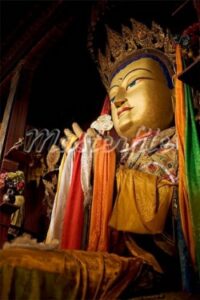
Alicia:
I'm a Buddhist of the Gelug School, which is the same lineage as His Holiness the Dalai Lama. My spiritual path is my whole life. I try to imbue all that I do, think, and say with the spirit of a Boddhisattva, which is great compassion and great wisdom. I also teach Buddhist philosophy, so it's really a big part of my life; it gives me great joy.
Lotte:
How did you enter this path?
Alicia:
Well, I met someone who was teaching meditation at the Asian Classics Institute here in L.A. I began taking his class, and that led me to take core Buddhist philosophy classes. I did the whole Asian Classics Institute core curriculum, 18 courses, which took me four years, and my mother did it with me. Then, in 2010, I began teaching, and I teach to this day.
"I teach principles of karma.
I teach principles like compassion. What is true wisdom?"
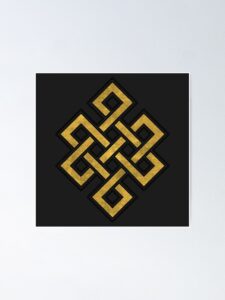
Lotte: How do your spiritual views inform your vision of justice?
Alicia:
From my spiritual point of view, especially as a Buddhist, I look to the future more than I look to the past. I identify the causes and conditions that I can put into play to create a more just and fairer world. I believe this approach is beneficial for me and for others, that fairness and justness are a part of reparations. How do we make things just and equitable for all people now?
Lotte:
How would you answer the question you just raised?
Alicia:
I teach principles of karma. I teach principles like compassion. What is true wisdom? What are some of the actions that we should take up and we should let go? The greatest step that we can take toward reaching a fairer and more equitable society is by being of service to others. For instance, beyond teaching, l also serve as a companion for an elder, a Holocaust survivor. She makes me borscht, and I get to listen to her life story, which is quite fascinating. So, there are many ways that we can be of service to each other. How are you going to be of service, in action, every day?
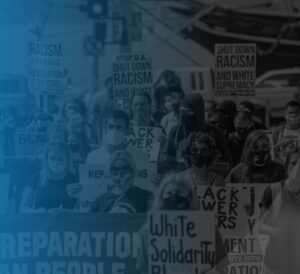
"Let's start with an apology. Acknowledge that what you did was wrong, and then we can move forward with how we'll make good on the apology."
Lotte:
What do you believe should be the first action steps toward repair?
Alicia:
I have to answer that in two parts. First, repair must begin with an apology. I really like the blueprint established by our Japanese American friends who sought reparations for imprisonment in concentration camps during WWII. Let's start with an apology. Acknowledge that what you did was wrong, and then we can move forward with how we'll make good on the apology.
The second element is education. Florida has shown its hand by repressing Black history courses. Unfortunately, what they're doing erases white history, too. Shared history. Ideally, I would really like to see a requirement for all people in the United States to have some understanding of our shared history from the Triangle Slave Trade through the present. Then we can talk about money.
"Ultimately, we are all related."
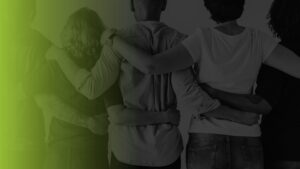 Lotte:
Lotte:
Fantastic. So, expanding on the concept of education, what changes in human consciousness would be necessary to accomplish full repair—especially a guarantee of non-repeat of harm?
Alicia:
It has to be the understanding that we are all connected. We are all cousins. We all descend from a black woman in Africa.
Now, I get this reminder from my mother: A lot of African Americans who consider themselves all black are still typically between 13 and 25% white because of the behavior of our white ancestors, the former owners of enslaved people.
Lotte:
I want to acknowledge we’re talking about rape, here.
Alicia:
Yes. And my mother is constantly reminding me that I'm part white.
I think that's a great reminder, and with our connection to Africa, it's also a reminder for white people that they're all part Black. So, once you take a step back and realize the expansive nature of our community, once we look at the community as the entire globe, it's possible for us to expand our thinking beyond me and mine. Ultimately, we are all related.
"To build a repaired future, we need to change the way we view our past and how we relate to each other in the present."
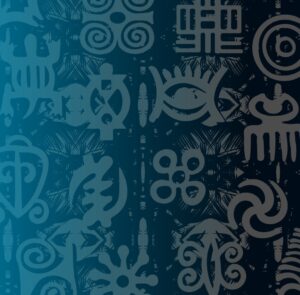
Lotte:
Let's expand reality even further. Let's look 200 years into the future. Visualize for us: if we have accomplished the work of repair 200 years hence, what will our society look like then, and how did we get there? What was the first step?
Alicia:
When you talk about 200 years in the future, I am optimistic that we will see a very, very different world. To build a repaired future, we need to change the way we view our past and how we relate to each other in the present.
For instance, after the Civil War, there was a missed opportunity to reframe this history during Reconstruction. As a comparison, after the Third Reich fell, swastika flags were banned, and statues of Hitler and Himmler were taken down. All these things were removed, and those ideologies were exposed for the evil they represented. School curricula reflected the new thinking.
The fact that this reframing did not happen after the Civil War and that statues celebrating the confederacy still stand is a deep wound for most Black people. And it also lets white people think what they did wasn't that bad. I would like to see a reframing of our history as part of our repair.
How might we reframe the concept of Southern pride? White people hold dear organizations like the United Daughters of the Confederacy and cling to these statues because they want to be proud of their history. So, if you take that away from people, what can you give them in return to instill pride?
This notion of lost identity also plagues the Black community. Our history was taken from us. We have no idea where we came from. Most of us don't have the great fortune that I have in learning about my grandfather, Andy. So, you have to give people something that they can be proud of.
"Ultimately, in 200 years, we'll either have repaired the damage or, as Albert Einstein said, we'll be left with just sticks and stones."
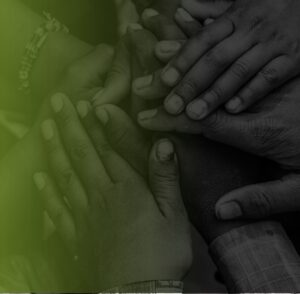
Lotte:
And what about how we relate to each other in the present?
Alicia:
Clean water and food must be available for everyone, starting now. And that comes with the dismantling of a lot of institutions that have had a strong foothold for a long time. I don't believe in billionaires. Money needs to be circulating so that all people on this planet have enough food to eat and shelter when they need it. I'm hoping we'll have a rapprochement politically across the globe. Things like Haiti paying millions and millions of dollars to France, taxation without representation, and many injustices like this across the globe are going to be resolved, and then we'll be able to get to the business of taking care of each other.
Once we expand this notion of who we are as a community through our commonalities, we'll be a little bit more protective of all people. And so, in 200 years, I see the world looking a bit like paradise. We have the technical ability to cure what's ailing our planet. So, I think that this conversation about repair is intertwined with how we are treating the planet. How we treat each other and how we treat the planet go hand in hand. Ultimately, in 200 years, we'll either have repaired the damage or, as Albert Einstein said, we'll be left with just sticks and stones.
Lotte:
Back to the question of faith. If people are doing this work of repair and engaging their faith, what kind of message would you give them to encourage them to keep going on that path? I hear of communities starting and then faltering on the path of repair.
Alicia:
I believe that there are two conveyor belts in this life. One belt takes you through birth, old age, sickness, and death. On the other one, you decide how you will make a difference in this world. Be a superhero, as I tell my students! How can I act in my free time to make this world a better place? That could be serving others as a volunteer. It could be educating others. The possibilities are endless for what that service can look like. I believe the more people of faith who get on that conveyor belt of superherodom, the more you will see faith-based communities making an impact. Hit a stumbling block? You jump back up, dust yourself off, regroup, and figure out what went wrong. And you keep marching forward.
"Working together, we can remain hopeful. Working together, we can repair the past and build a just future."

Lotte:
Alicia, what question have I not asked you that seems emergent?
Alicia:
One thing I learned from my dad, who was a civil rights lawyer, was that we'd still be living under Jim Crow if it weren't for white people joining Black people during Freedom Summer, putting their lives on the line for justice. We all need to support each other; we all have much more power than we realize. We've got fibers coming in from everywhere: we have different experiences, different vantage points, different perspectives. Working together, we can remain hopeful. Working together, we can repair the past and build a just future.
